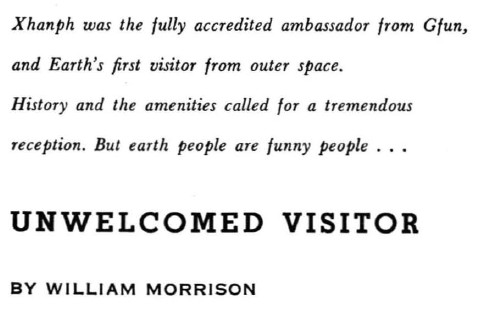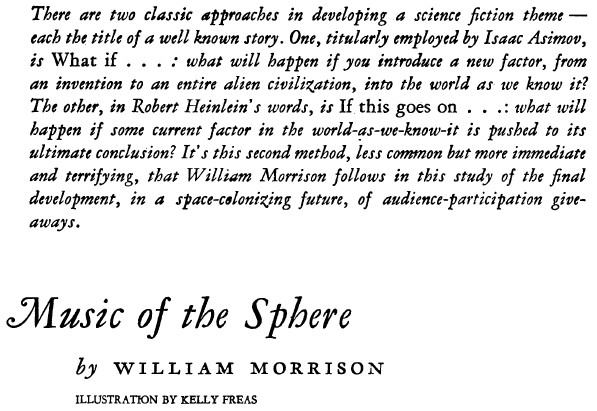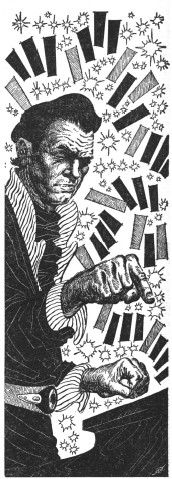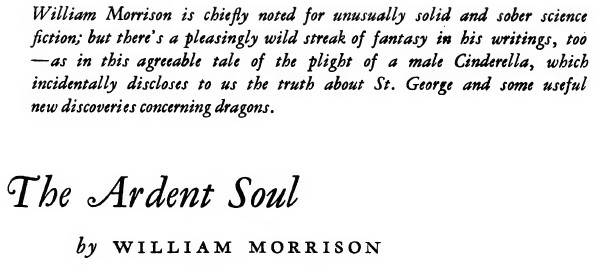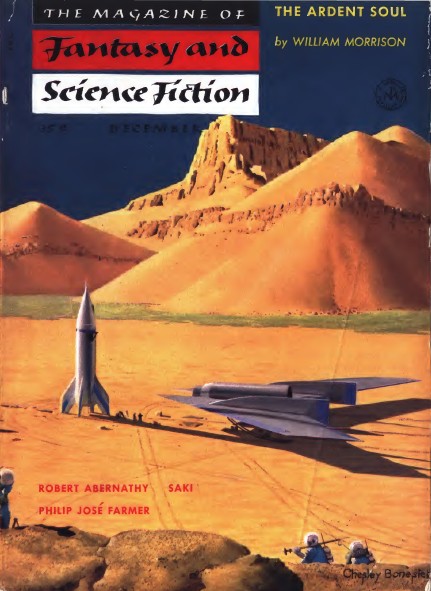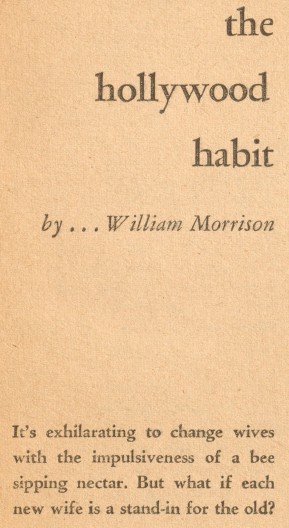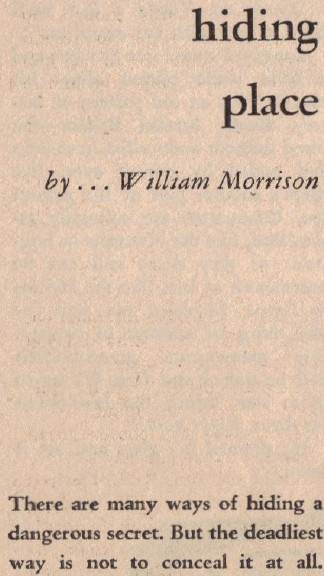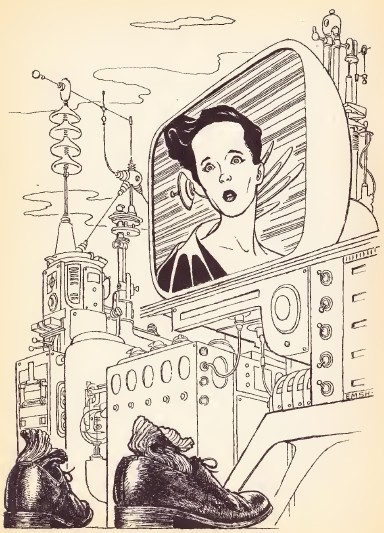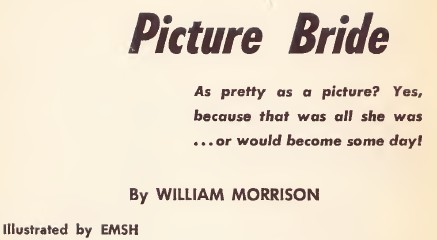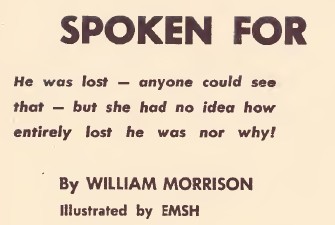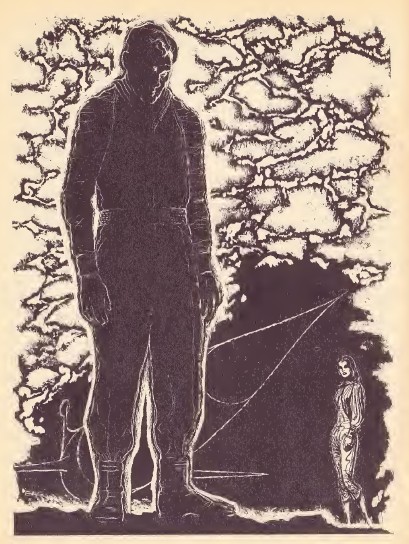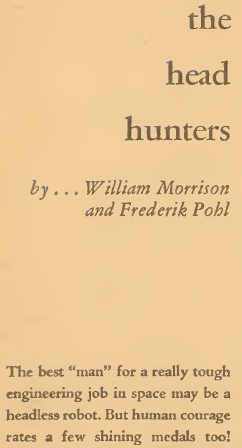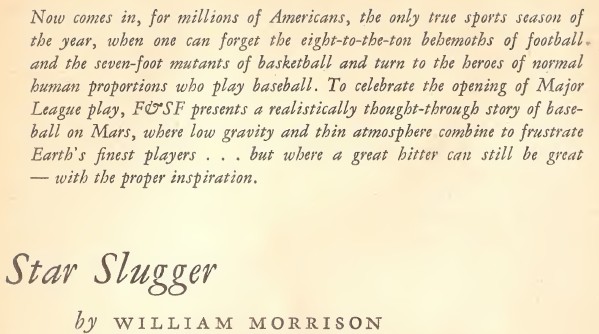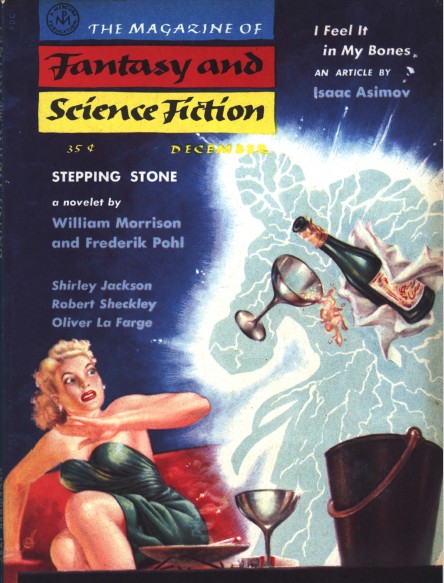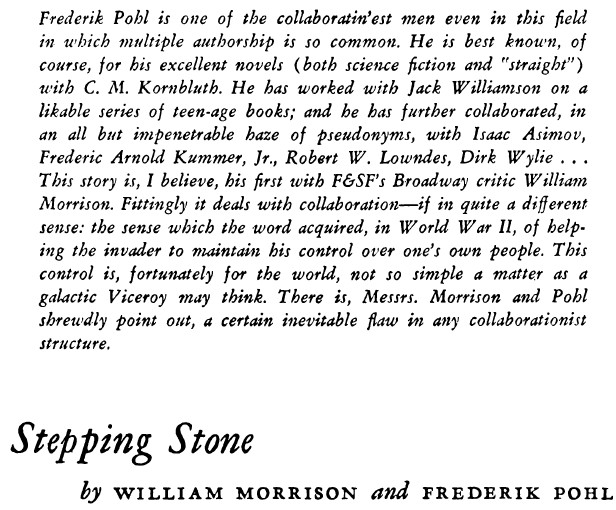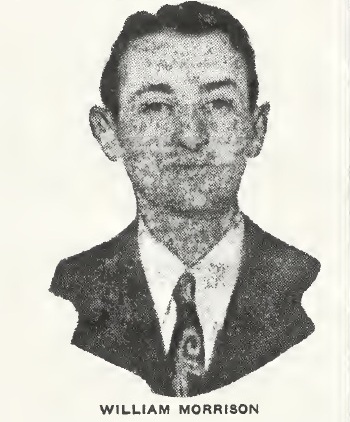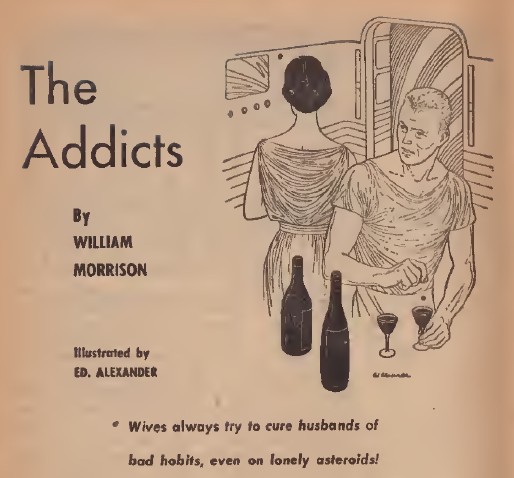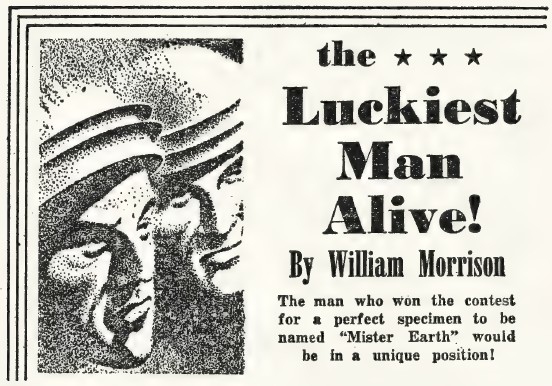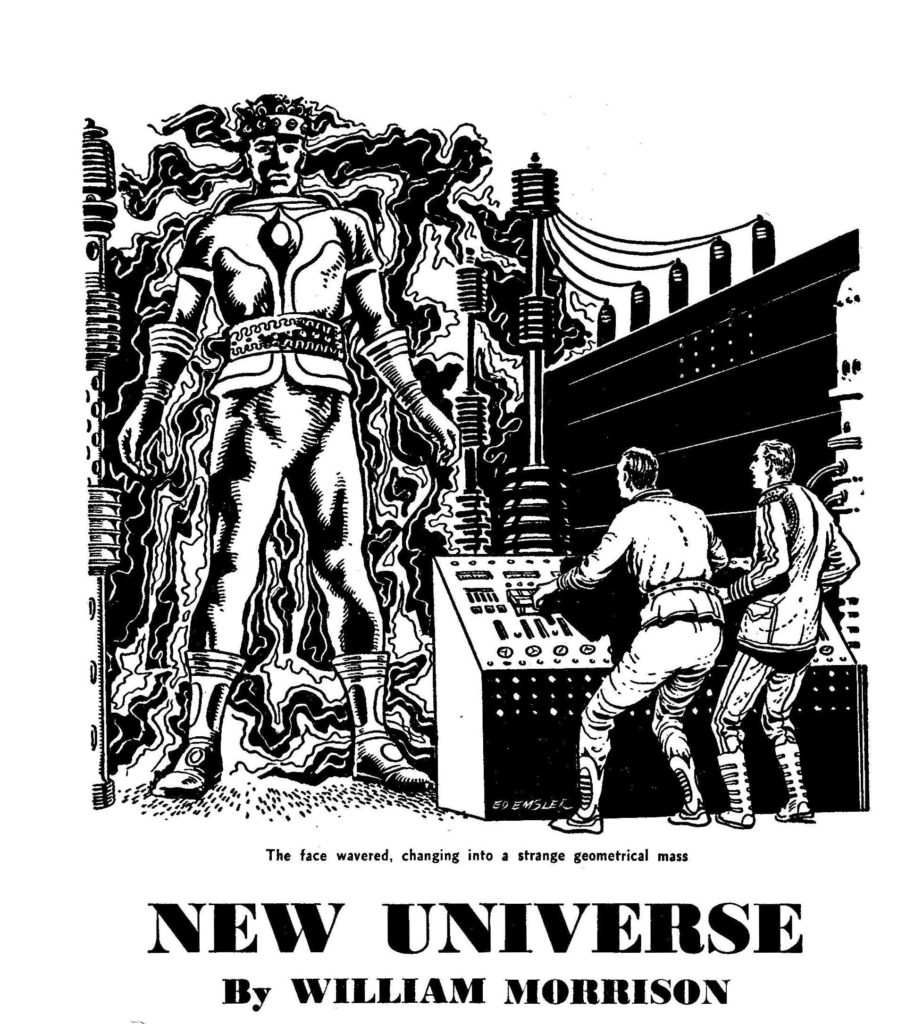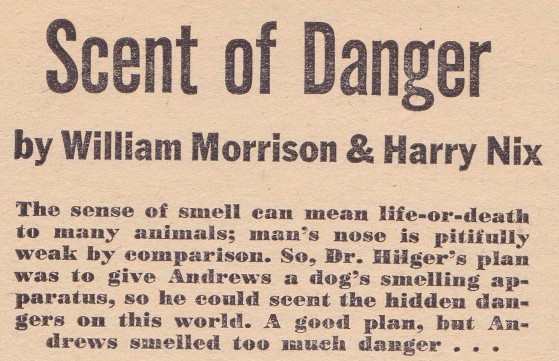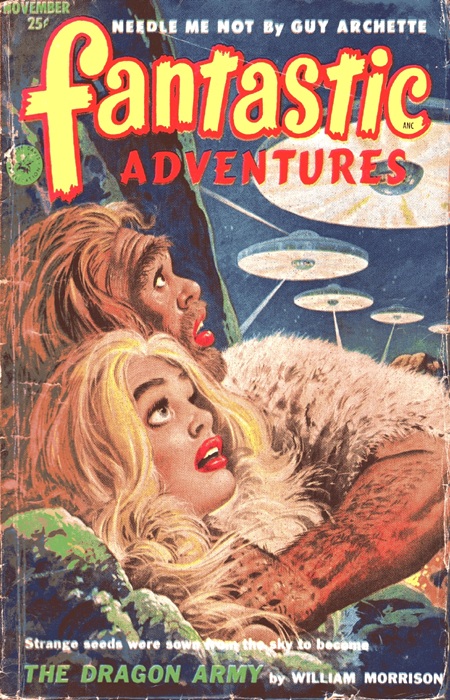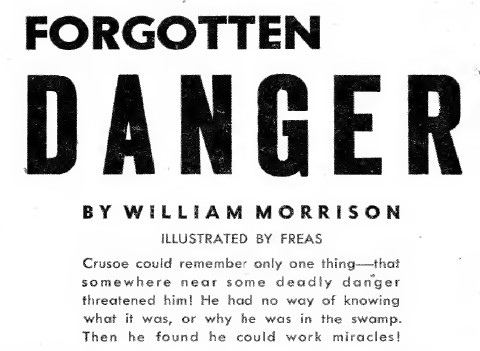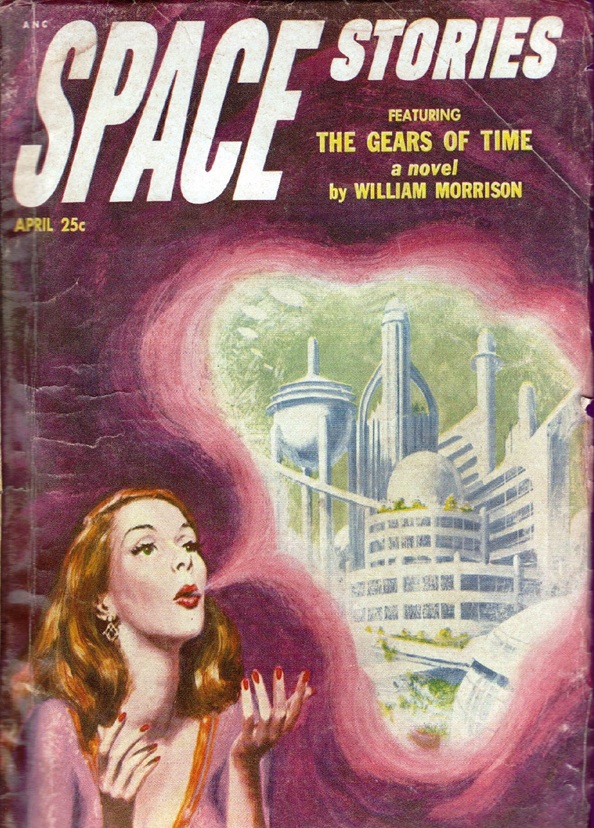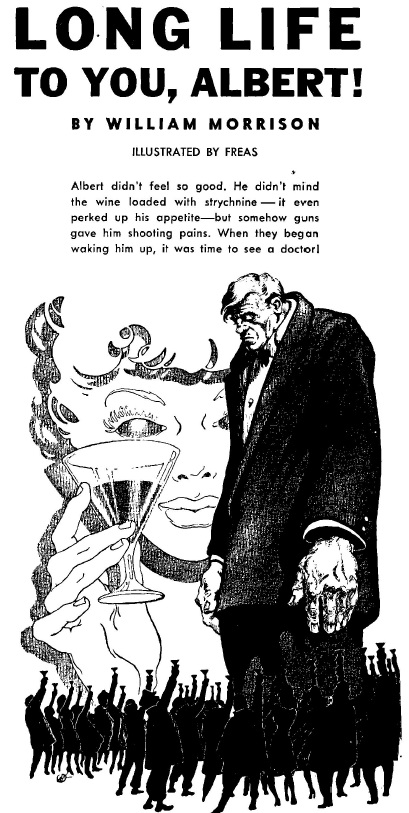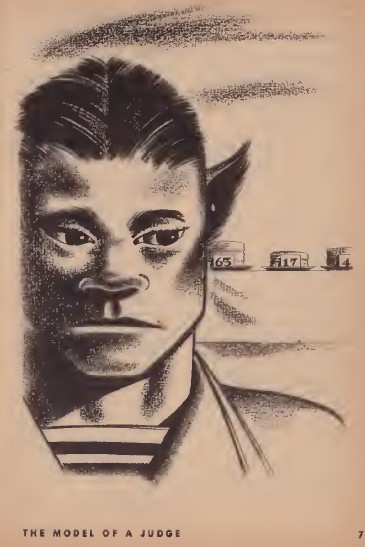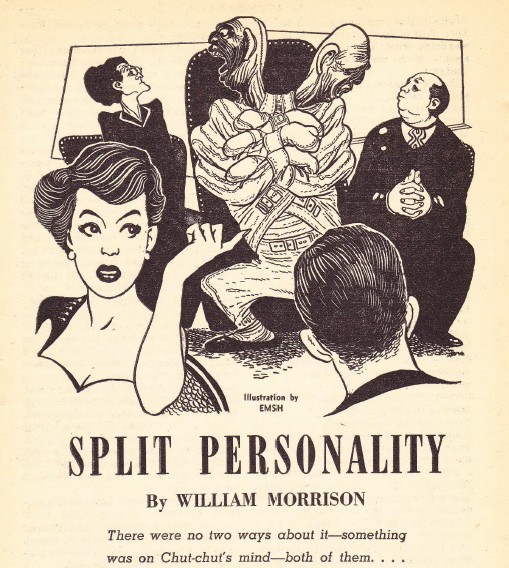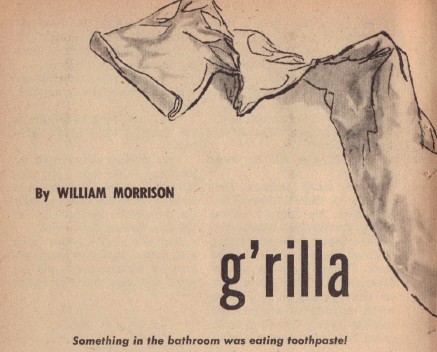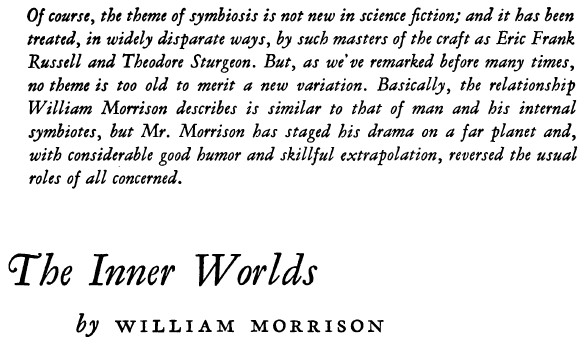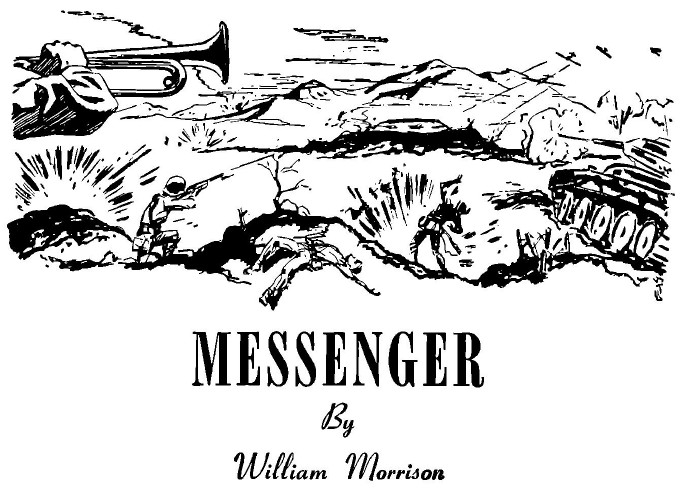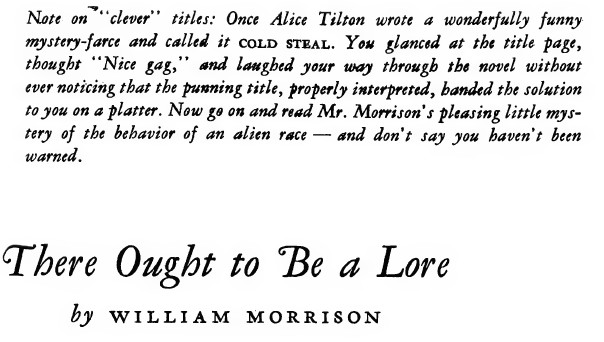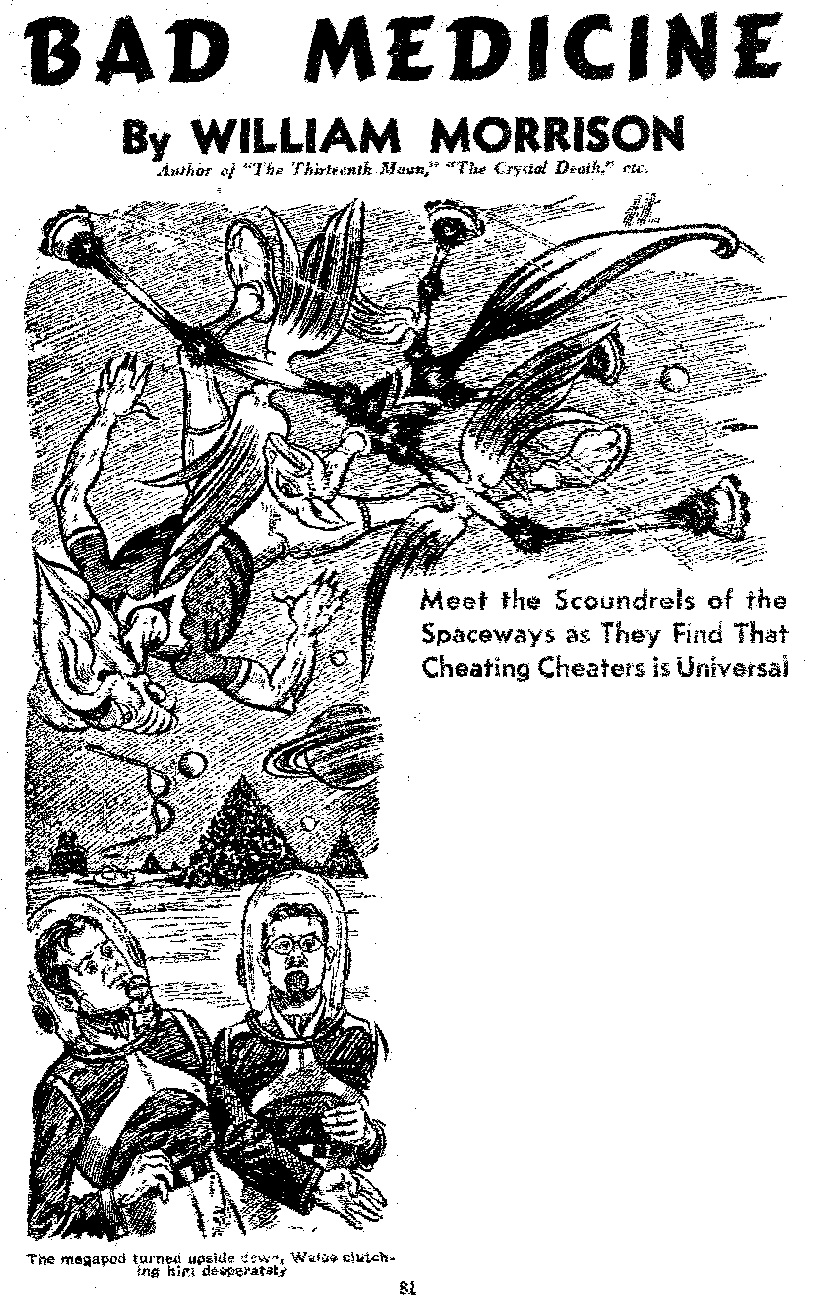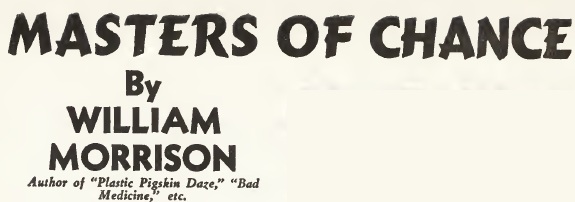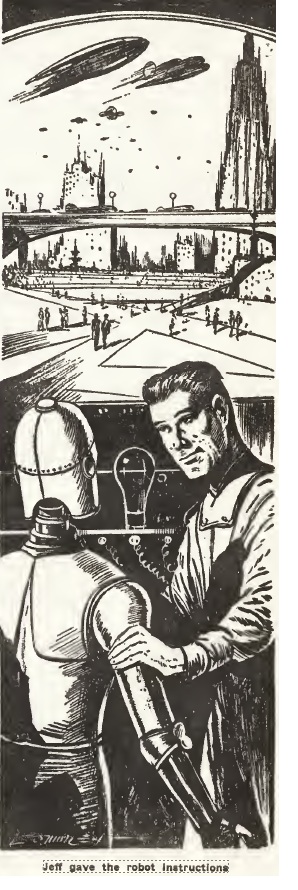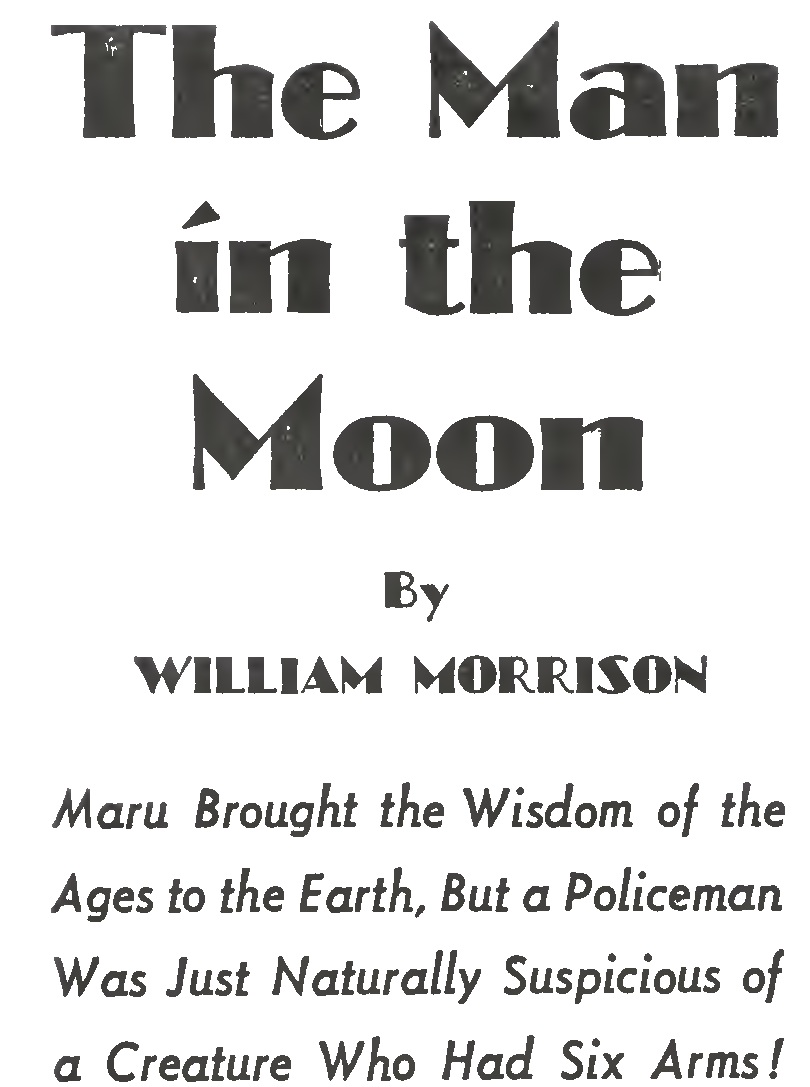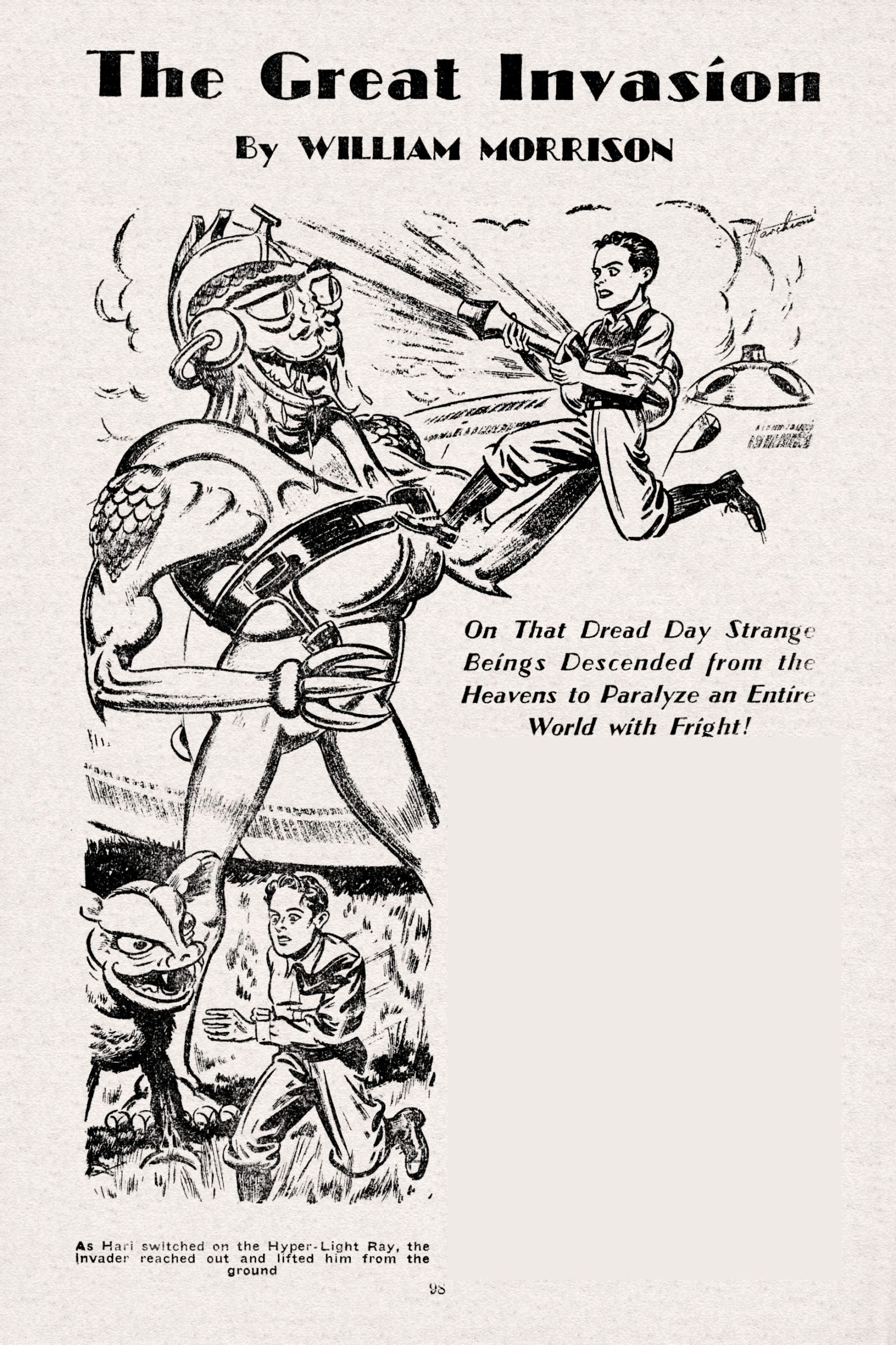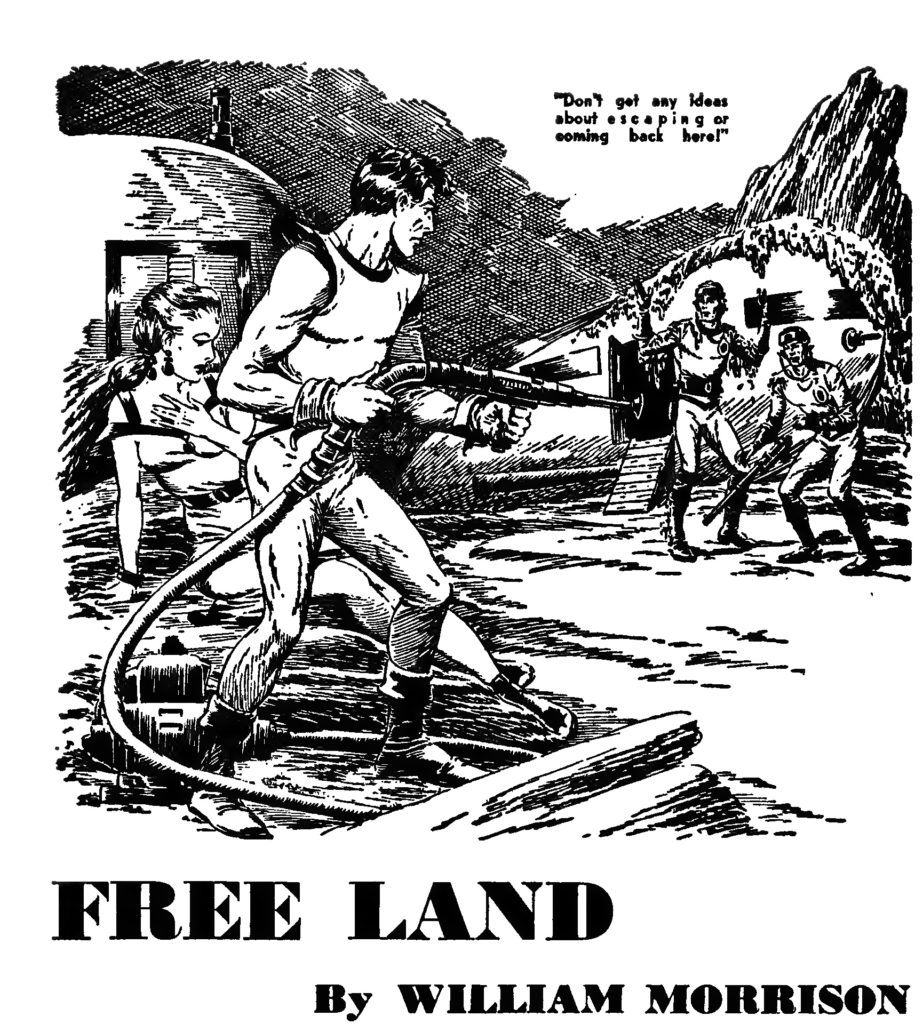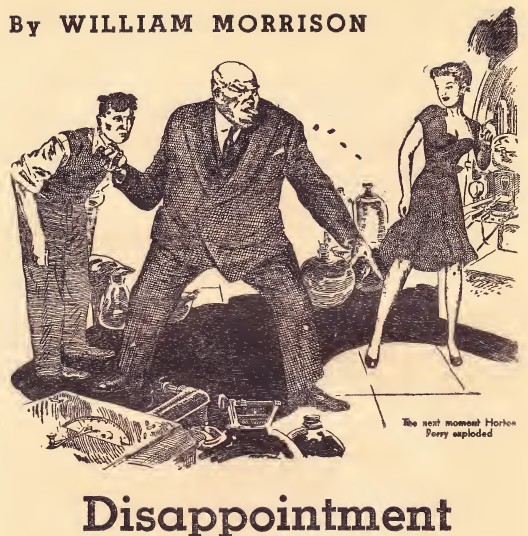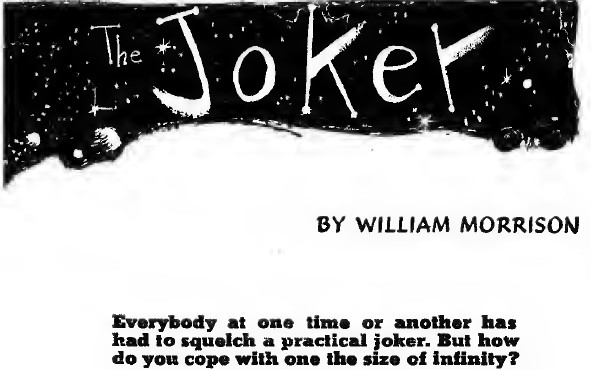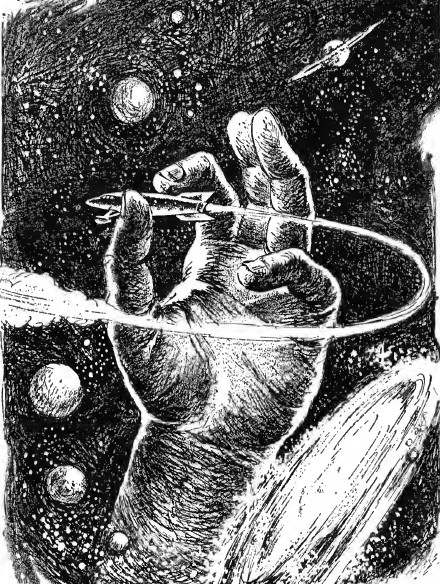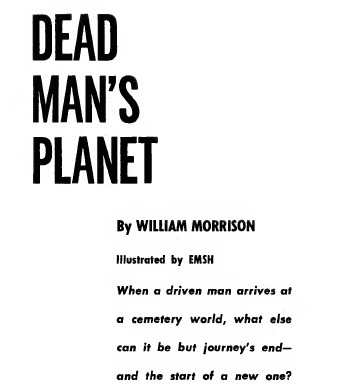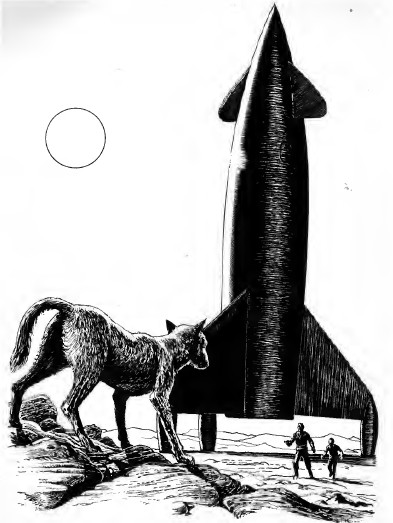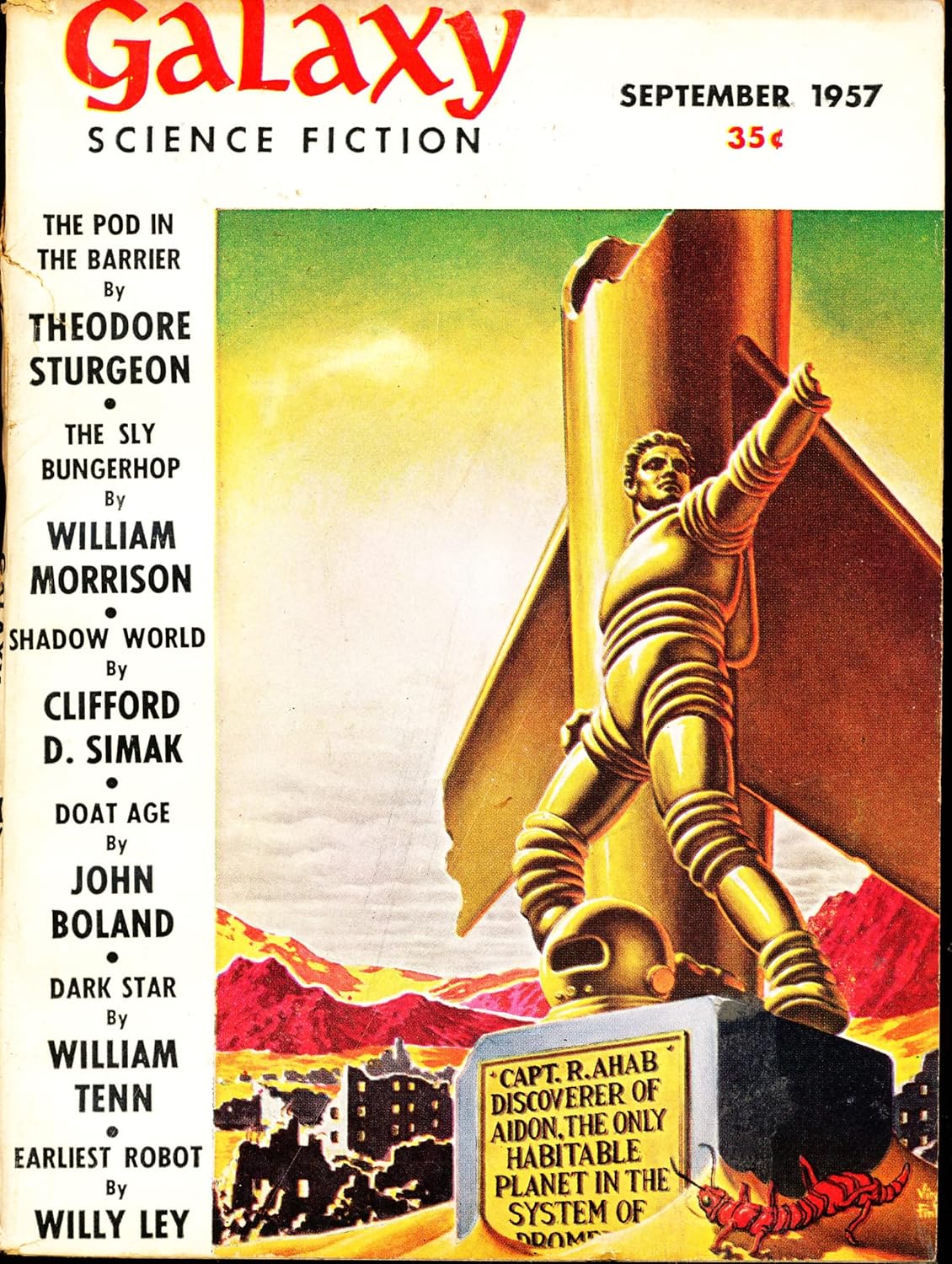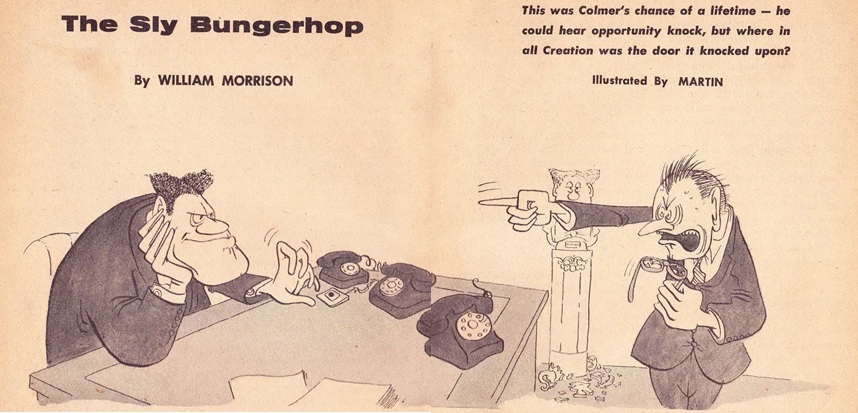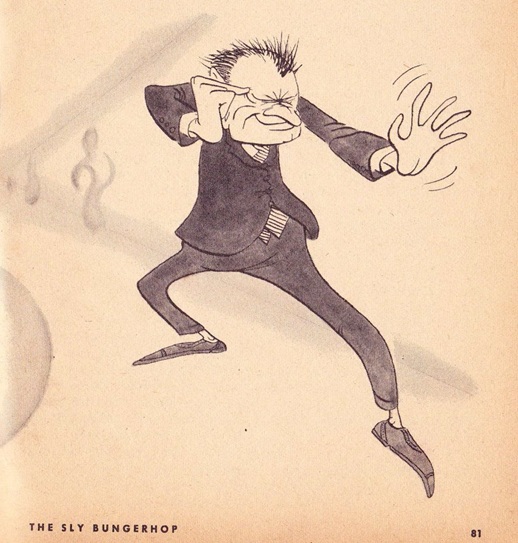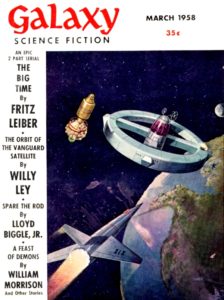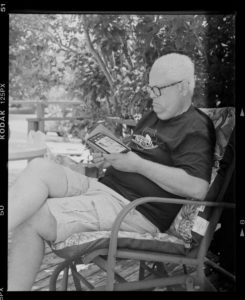 Well, it’s done! In case you don’t know or haven’t been following along, I had committed to reading all 79 short science fiction stories of the virtually forgotten author, William Morrison. I started talking about this in a previous blahg, THE SLY BUNGERHOP ET AL, and provided updates in the subsequent blahgs WILLIAM MORRISON…HALF-WAY THERE and WILLIAM MORRISON AGAIN…NOT DONE YET. At the end of that last blahg, I had reached the 69 out of 79 mark with ten to go. With only ten left, I thought it would be clever to do a countdown for that last 10.
Well, it’s done! In case you don’t know or haven’t been following along, I had committed to reading all 79 short science fiction stories of the virtually forgotten author, William Morrison. I started talking about this in a previous blahg, THE SLY BUNGERHOP ET AL, and provided updates in the subsequent blahgs WILLIAM MORRISON…HALF-WAY THERE and WILLIAM MORRISON AGAIN…NOT DONE YET. At the end of that last blahg, I had reached the 69 out of 79 mark with ten to go. With only ten left, I thought it would be clever to do a countdown for that last 10.
First, let me recap what stories I had left:
-
Unwelcomed Visitor, If, October 1954
-
Music of the Sphere, Fantasy and Science Fiction, October 1954
-
The Ardent Soul, The Magazine of Fantasy & Science Fiction, December 1954
-
The Hollywood Habit, Fantastic Universe, April 1955
-
Hiding Place, Fantastic Universe, June 1955
-
Picture Bride, Galaxy, June 1955
-
Spoken For, Galaxy, July 1955
-
The Head Hunters (with Frederik Pohl), Fantastic Universe, January 1956
-
Star Slugger, The Magazine of Fantasy and Science Fiction, June 1956
-
Stepping Stone, The Magazine of Fantasy and Science Fiction, December 1957
This batch of stories are full of the Morrison humour and some of that borders on the dark side. One of the stories also appears to be out of place. As a reminder, I started reading in alphabetical order before switching to chronological order. The very last published William Morrison short science fiction story was “A Feast of Demons” published in Galaxy magazine in March of 1958 but I read that earlier on. The final 10 were published, as you can see, from October 1954 to December 1957. Let’s get into it.
#10) Unwelcomed Visitor, If, October 1954. This is a fun story. An alien comes to Earth and no one pays him any attention. He eventually learns that with books, radio, television, and movies, the citizens of Earth have seen it all when it comes to stories of visitors from outer-space so when it finally happens, no one is surprised!
9) Music of the Sphere, Fantasy and Science Fiction, October 1954. A scientist comes back to Earth after spending two years in isolation on an asteroid. When he comes back, everyone he encounters is caught up a contest to see who can play a strange tune. It drives the scientist nuts and he has to find out what’s behind it all. It was an interesting premise but it lacked humour and I think that would have put this one over the top.
8) The Ardent Soul, The Magazine of Fantasy & Science Fiction, December 1954. If “Music of the Sphere” was missing the Morrison humour then “The Ardent Soul” makes up for it. It’s an updated Cinderella story where the main character, a male, is a descendant of St. George of the St. George and the Dragon fame. Yes, there’s a twist of there being a step-father and step-brothers in this story. What did our hero inherit from St. George? Or did he inherit it from the Dragon? This was a very funny read and the story title got a mention on the cover.
7) The Hollywood Habit, Fantastic Universe, April 1955. This was a very short story, running about five and half pages. Yes there’s humour but there’s a tinge of darkness to this one. A Hollywood actor keeps going through wives until someone discovers maybe each wife is not different but a variation of the first wife. What happens when the newest wife catches on? What’s her revenge?
6) Hiding Place, Fantastic Universe, June 1955. A Chemist turned Detective has to find out where a scientist has hidden a secret formula. Once he finds the location, what’s he to do with it then? Not a humorous story but a moral laced one that reads well.
5) Picture Bride, Galaxy, June 1955. A man says he’s in love with a woman on his television screen. The thing is, she’s real and lives in the distant future. What’s a guy to do? Interesting premise and a good read.
4) Spoken For, Galaxy, July 1955. This one is similar to “Picture Bride.” Both are sweet stories that make for interesting reading. On one of Jupiter’s moons a woman discovers a man searching for his family. She becomes enamoured of him but can she really help someone who has woken up in a distant future and doesn’t realize his family is long gone?
3) The Head Hunters (with Frederik Pohl), Fantastic Universe, January 1956. This is a rough and tumble story on the dark side. Again, no humour in this one. A male and female scientist try to escape the murderous wrath of a second male scientist on a remote planetoid. They’re not alone because there are worker robots. What happens when the robots are taught that the evil scientist is defective? What do you do with a defective robot after all? Again, another darker tale. William Morrison co-authored this one with Frederik Pohl.
2) Star Slugger, The Magazine of Fantasy and Science Fiction, June 1956. This is a story that I found out of place…or maybe out of time. It is suited more to an early or mid-1940s type of story. A group of Earth baseball players have to find a way to win a game against another team when they play on Mars. Interesting but suited to an earlier decade.
1) Stepping Stone, The Magazine of Fantasy and Science Fiction, December 1957. This is another story that William Morrison co-wrote with Frederik Pohl. What an interesting story to finish off with as the last William Morrison short science fiction story I had to read. I don’t know if this a parody or mockery of Nazi takeover from the 1940s. An alien comes to earth and proclaims himself the new Viceroy. A Chemist, nagged by his wife, has to work in the new order and try to work his way up the ranks. He eventually finds a way to take down the Viceroy. Mild humour but it definitely makes you think what some European countries had to do under the oppressive thumb of Hitler. The story also got a mention on the cover but the cover art is not representative of this story.
That’s it. I have read all 79 short science fiction stories by William Morrison. It’s sad that very few people have heard of him. He wrote some very good short stories. I think my favourites from this last batch were “Unwelcomed Visitor” and “The Ardent Soul.” Both had the Morrison sense of humour. So, what’s next? There are a couple of longer stories that he wrote under the name Brett Starling, “Worlds To Come” in “Captain Future, Spring, 1943,” and “Days of Creation” in “Captain Future, Spring, 1944.” “World To Come” is listed as “A Complete Book-Length Scientifiction Novel” and runs 63 pages. “Days of Creation” runs 68 pages and is also noted as “A Complete Book-Length Novel.” I didn’t include them in the 79 I read as they were written under the name Brett Starling while the 79 were published as William Morrison stories. Of course William Morrison was a pseudonym for Joseph Samaschon. There’s also Morrison’s novel ”Mel Oliver and Space Rover on Mars” published by Gnome Press in 1954 and a bunch of Detective and Western stories also published under the name of William Morrison. I don’t have all of those yet but I’ll get a start on them soon and will post about it here. Do yourself a favour, track down the Morrison science fiction stories. There’s great reading in store for you, if you do.
